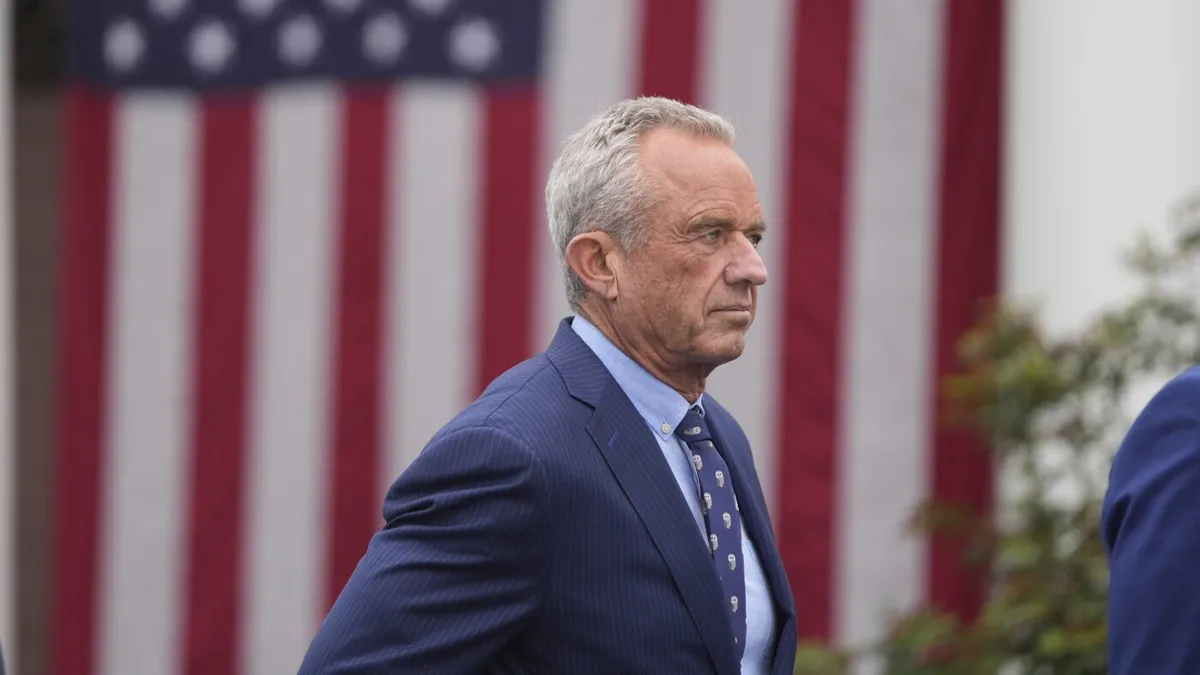
An unexpected endorsement of the measles, mumps, and rubella (MMR) vaccine by Health and Human Services Secretary Robert F. Kennedy Jr. has ignited significant backlash from the anti-vaccine community. In a detailed post on the social media platform X, Kennedy emphasized that the most effective method to prevent the spread of measles is through the MMR vaccine. This statement comes on the heels of his meetings in Gaines County, Texas, with families mourning the loss of two children due to a recent measles outbreak in the state.
During his post, Kennedy reported that he had instructed the Centers for Disease Control and Prevention (CDC) to provide pharmacies and Texas-run clinics with the necessary MMR vaccines and other medical supplies. His endorsement aligns with substantial scientific evidence regarding the efficacy of the MMR vaccine. Dr. Paul Offit, director of the Vaccine Education Center at the Children’s Hospital in Philadelphia, asserts that a single dose of the vaccine is about 93% effective in preventing illness, while two doses can increase that effectiveness to 97%.
According to data from the Texas Department of State Health Services, only 10 of the 481 measles cases reported as of April 4th involved individuals who were partially or fully vaccinated, which amounts to approximately 2% of all cases. Tragically, three unvaccinated individuals, including the two children in Texas and an adult in New Mexico, have succumbed to the disease.
Dr. Kathryn Edwards, a retired professor of pediatric infectious disease, expressed her satisfaction with Kennedy's endorsement, stating, “I’m delighted to hear what Secretary Kennedy has said about giving the vaccination.” She added that while she had hoped for an explicit endorsement earlier in January, she believes it is better late than never.
Despite the support from some medical professionals, Kennedy’s endorsement was met with fierce criticism from prominent anti-vaccine activists. Dr. Sherri Tenpenny, known for her controversial claims regarding vaccines, criticized Kennedy’s statement as poorly worded. Del Bigtree, another notable figure in the anti-vaccine movement who co-founded a non-profit with Kennedy, questioned the validity of the endorsement, suggesting that Kennedy's post may have been incomplete.
Dr. Mary Talley Bowden, a Texas-based physician who has openly opposed COVID vaccines, expressed her disappointment, stating, “We voted for challenging the medical establishment, not endorsing it.” Bowden highlighted that many of Kennedy's supporters were disillusioned with the pandemic responses from both Biden and Trump, and they were drawn to Kennedy’s willingness to discuss these issues.
Kennedy’s recent endorsement starkly contrasts his past skepticism about vaccines. Previously, he chaired an anti-vaccine non-profit, Children’s Health Defense, which attempted to challenge school vaccine requirements during a measles outbreak in New York in 2019. In a 2023 interview with podcaster Joe Rogan, Kennedy claimed that the measles vaccine did not significantly reduce mortality rates, attributing deaths to malnutrition among specific demographics.
In his role as Health Secretary, Kennedy has occasionally acknowledged the efficacy of the MMR vaccine, noting its importance in achieving community immunity, which protects those unable to be vaccinated for medical reasons. However, he also made controversial claims regarding the role of vitamin A in reducing measles mortality, a statement that Dr. Offit disputes, indicating that high doses can harm children’s livers and do not affect the disease course in developed nations like the U.S.
In a follow-up post, Kennedy shared images with the families of measles victims while promoting two therapies, aerosolized budesonide and clarithromycin, neither of which are recognized as effective treatments for measles. Dr. Offit dismissed these treatments as ineffective, stating that the measles outbreak is still not under control and may worsen. He expressed his distress over the resurgence of this preventable disease, stating, “Measles was eliminated in the U.S. in 2000, but it is killing children again.”
The recent events surrounding Kennedy’s endorsement of the MMR vaccine highlight the ongoing debate between public health measures and anti-vaccine sentiments. As the situation develops, health experts continue to stress the importance of vaccination in protecting both individual children and community health.